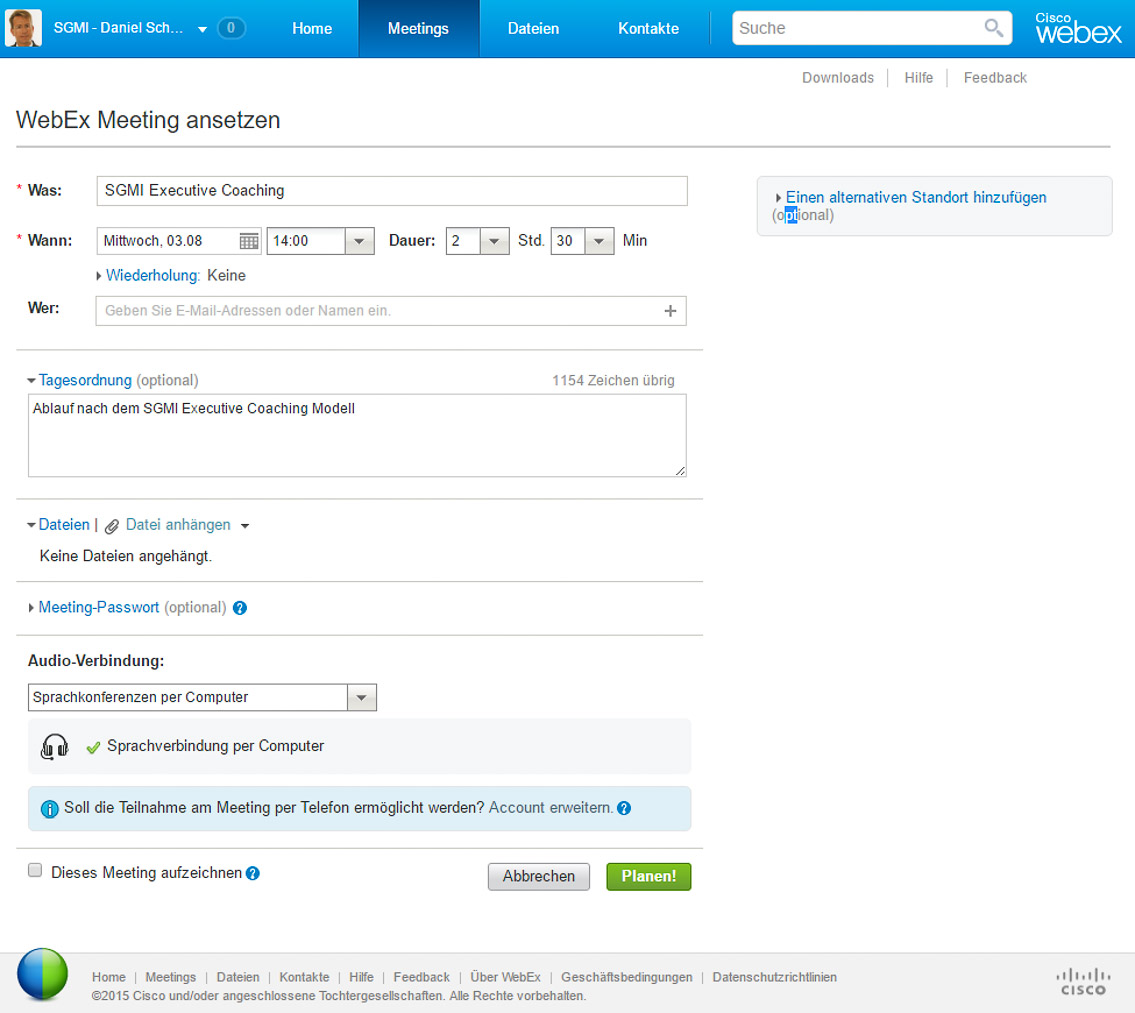Methodical Approach
Our programs are highly customized. Experienced faculty can answer all of your questions. Our clients appreciate our flexibility in getting to know them and the specifics of their business.
In our development programs we use:
Action Learning
Participant experience and concerns are built into program activities, so learning follows from practical example and with close fidelity to the special characteristics of the company and the industry.
Group and Project Work
Team formation in the context of the development program: during the seminar modules, and between them, international, intercultural groups work on program topics – theory and practice. Learning transfer already happens during the program.
Case studies, Real Life Cases
We work with "mini cases," a highly effective, dynamic form of case study learning. In a short time, participants gather real-life cases and insights from the full spectrum of company activities. In addition to developing knowledge, case studies generate solutions to our client's concrete questions.
Implementation Tools for Daily Business
So that the compiled knowledge can be used smoothly on the job, our participants receive company-specific tools that have been successfully tested in practice.
Linked to Participant Experience
We work with the experience of the participants. Especially with heterogeneous, international groups, this link expedites learning.
Use of New Media and Learning Methods
Knowledge Exchange Platforms
A learning platform is built on the client's Intranet, and the in-company program is steered from it. Participants visit the platform to keep up with the program, stay in touch and exchange experience.
E-Learning
E-learning supports classroom learning: content preparation, follow-up to each module and in-depth coverage of individual topics.
Video Conferences
Video conferences support distance learning when a group meeting is too expensive or too time-consuming.
Blended Learning
In collaboration with renowned international faculties, SGMI offers demanding on-line seminars that help participants link the knowledge inside the company with the latest management know-how learned in the program. The seminars thus help the participants improve their management qualities and develop their organization.
SGMI uses web-based learning technology and blended learning in the following areas, among others:
- Strategic Management
- Marketing Management
- Financial Management
SGMI e-learning platforms support participants with:
- Management Tools und Documents
- Management Knowledge
- Management Cases
- Current Literature
Digital Learning
New technologies offer possibilities to transfer the learning content of SGMI Institute of Management St. Gallen through new channels and thereby directly address different target with less effort. Digital Learning Portals, MOOC, and even entire integrated digital development programs are available in the workplace and on mobile devices.
SGMI Virtual Coaching
Coaching sessions of 1 to 3 hours will be held via WebEx, Skype, or other suitable platforms. Since there are no travel expense, Virtual Coaching sessions can be organized on short notice, if required, and are also suitable to respond to current and urgent incidents of your day-to-day business.
You can also book shorter units and benefits from the modular design of the program: Several modules, interrupted by practical application stages, are presented in an overall context.
Virtual Coaching is particularly interesting for global corporations as it allows every key person at all locations to participate in a highly effective executive coaching program.

Learning Transfer: Follow-up, Controlling
Education and training are essential tools to implement a company's strategy because only a specific capacity development provides the resources required to ensure the implementation of the corporate strategy and the achievement of corporate objectives. Our projects aim to make a sustainable contribution to our customer's strategy implementation. Therefore, measuring the success of our seminars and programs is of great importance to us.
Transfer Check within the Modules
The modular structure of our management programs allows an early transfer check at the beginning of the sequential modules.
Transfer Check through Project Work
In order to increase knowledge transfer, individual or team projects can be positioned in between the modules. The project work can also include a transfer check.
Transfer Check in Daily Business
A close cooperation with our client's human resource department and line management is important to us in order to obtain appropriate feedback regarding the successful transfer of the seminar content into daily work. After all, the participant's development progress, with regard to the specific task, is the only thing that counts. Another advantage of transfer checks in daily business is the increased involvement of line managers in the design of development programs and performance measurements. This allows line managers to support the participants in his implementation steps, which further increases the chances of a successful implementation.






